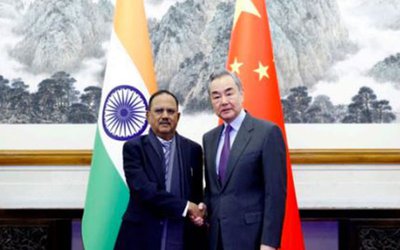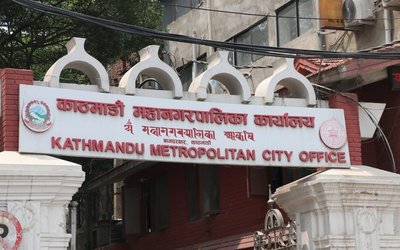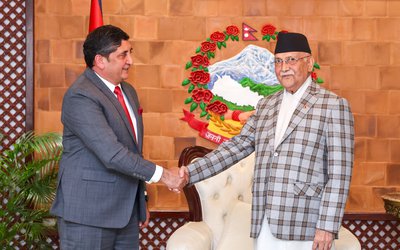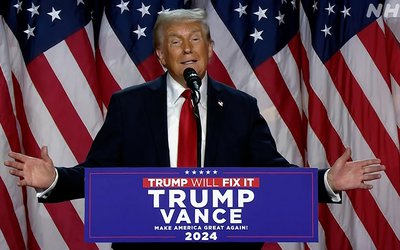Only after the fall of Rana oligarchy could the Nepalese commoners have access to formal education within the country. But, in some 60 years since, educational institutions have mushroomed in number and reach. Private schools and colleges are leading the growth as the government institutions, which thrived for a while, have lost their luster.
Shanti Adhikari, director of the Princeton International Academy, remembers public colleges had their pride of place in his days.
"I was very proud that my college, Patan College, was one of the best institutes of the country," he says, "but now it's not so, the government institutions are nobody’s first choice."
Adhikari, son of renowned Sanskrit scholar professor late Radha Krishna Adhikari, learned the value of education from his childhood.
He went to Laboratory School, Kirtipur, one of the finest schools of the time and later developed interest to work in the education sector.
“Public academic institutions have more qualified teachers and resources than private institutions,” he says. “It is hard to figure out why they are below private institutions in reputation."
Adhikari suspects the common people give the government a low rating for not following up on their institutions and seeing to it that they are functioning well.
He believes the carelessness of the faculties involved also tarnishes the image of these schools.
“Even though they have limited resources, private institutions are thriving due to their strong management,” he argues.
There are 2,512 Higher Secondary Schools affiliated with the Higher Secondary Education Board.
"If any of our students or faculties remains absent even for a day we make sure we know why this happened and act accordingly. But the government institutions lack this check and balance system," he says, “Therefore, I believe, a good management team is vital for running an institution."
Here is how his Princeton Academy works. "We hold regular examinations, and class tests. This makes students alert. We also emphasize extra-curricular activities and even proper counseling for students having problems in their studies."
"Students should feel free to explore their destinations and to foster their intellectual growth. Therefore, we don't hinder their development with ordinances. But if they fail to perform their basic duties, we don't fail to dictate either."
But what about the talks seeking ban on private institutions we hear from time to time?
Furthermore, he adds that if the government is to ban private institutions they should have a concrete plan as to what they will do to the students who are now with the private institutes.
"But, personally, I too feel bad about the dual education system of Nepal. Therefore, there should be a policy that could bridge the gap between students of private and government institutions," he concludes.
- SWISS SUPPORT: Construction Of A Trekking Trail In Koshi
- Dec 19, 2024
- PM OLI'S VISIT TO CHINA: BRI Agreement
- Dec 16, 2024
- RASUWAGADHI AND SANJEN: Begin Generation
- Dec 03, 2024
- NEPAL, INDIA ELECTRICITY TRADE Nepal's Advantage
- Dec 02, 2024
- PM Oli'S VISIT TO CHINA: Nepal's Dilemma
- Dec 01, 2024
















